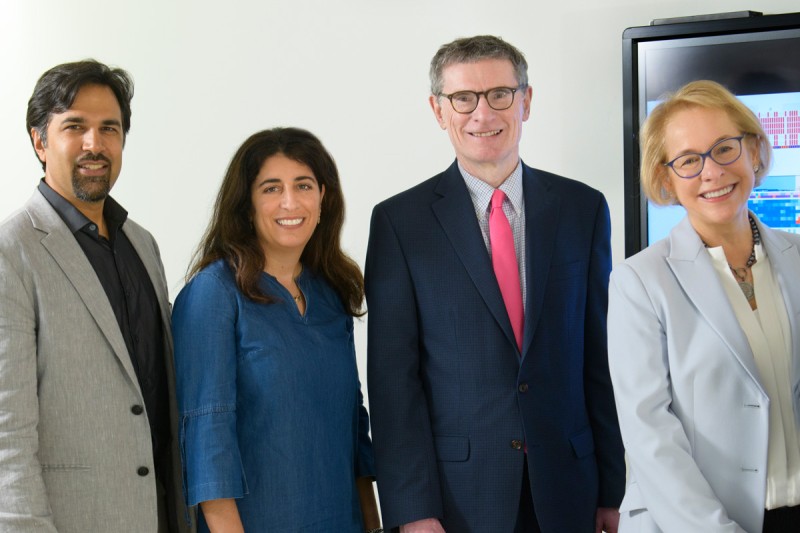
Reducing Cancer Burden Through Research
In the Department of Epidemiology & Biostatistics, we are dedicated to reducing cancer morbidity and mortality through research that combines traditional study designs with innovative new approaches.
Our multidisciplinary team comprises faculty and non-faculty members who devote their specialized skills in epidemiology, biostatistics, health outcomes, and computational oncology toward several key areas of cancer research. These focus on the causes and biology of cancer, as well as strategies for cancer prevention, diagnosis, and treatment.
The Epidemiology Service focuses on cancer prevention by investigating the etiology of cancer and by evaluating the effect of screening. Primary prevention investigations have focused on the study of genetic susceptibility to cancer. The Epidemiology Laboratory screens germline DNA for genetic polymorphisms, mutations, and other genetic changes that predispose individuals to cancer. Functional assays are also conducted to assess the effects of these genetic changes.
The Computational Oncology Service is an academic home for investigators focused on clinical-translational genomics research. The Service aims to synthesize expertise in computational biology, cancer biology, and clinical oncology and is therefore closely aligned with the research activities of several translationally focused centers at the institution, foremost among them the Marie-Josée and Henry R. Kravis Center for Molecular Oncology (CMO) and the Center for Hematological Malignancies.
Next-generation sequencing has enabled scientists to collect an astonishing amount of data about the genomes of both normal and cancerous cells. Through computational oncology, our investigators are creating tools that enable them to navigate and analyze this vast quantity of information and translate molecular insights into treatments that can benefit patients.
The Health Outcomes Research Group is involved in projects aimed at understanding patterns, delivery, and outcomes of cancer treatments. Much of our research involves analyses of large databases such as the National Cancer Institute’s Surveillance and Epidemiology End Results Program (SEER) cancer registry. We also examine claims and discharge data such as those from Medicare. The research group conducts systematic reviews of the literature and builds decision models.
Recent projects have evaluated racial discrepancies in lung cancer care, the impact of hospital procedural volume on survival for lung and colon cancer treatments, and patterns of adjuvant treatment for colon cancer.
The activities of the Biostatistics faculty have traditionally fallen into three broad categories: long-term collaborative projects, short-term consulting, and research on new statistical methods.
Current long-term collaborative projects include: NIH-funded program projects in soft tissue sarcoma, ovarian cancer, bone marrow transplantation, clinical immunology, and cancer chemotherapy. Other important collaborations include PET scanning and the medical treatment of prostate cancer.
Short-term projects include, but are not limited to, protocol design, grant applications, and statistical analysis. We also provide randomized treatment allocations in collaboration with the Pharmacy.
Our biostatisticians are members of multi-disciplinary research teams. We firmly believe that collaborative support and the development of methodological innovations go hand in hand. Many staff members pursue research interests in statistical methodology. Our interests span cancer prevention, diagnosis and treatment (clinical trials) as well as specialized research in survival analysis, statistical genetics, and computer, intensive methods.
Explore career opportunities in the Department of Epidemiology and Biostatistics.
Follow us on Twitter: @MSKBiostats






